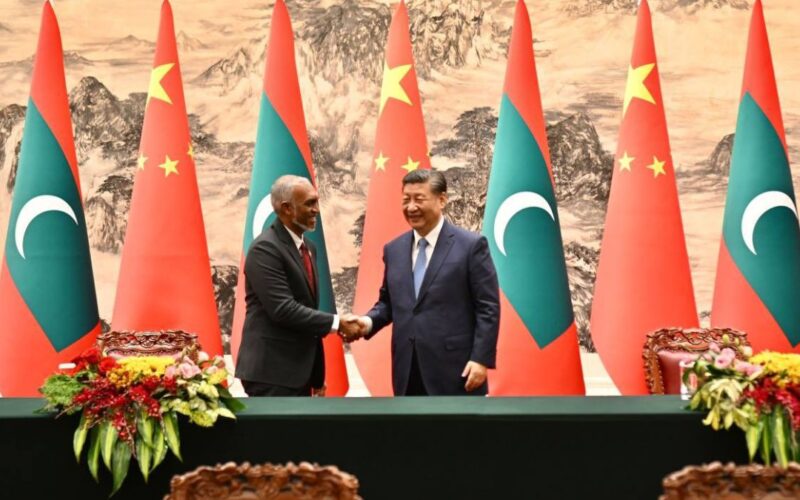The Maldives, an archipelago in the Indian Ocean, has become a focal point of China’s strategic interests, marked by growing diplomatic, economic, and infrastructural engagements. This article explores the motivations behind China’s keen interest in the Maldives, examining the geopolitical significance, economic partnerships, and the broader implications of this relationship.
Geopolitical Significance of the Maldives
Strategic Maritime Location: The Maldives, strategically located in the Indian Ocean, holds immense geopolitical significance. Its proximity to key global shipping routes and its position in the Indian Ocean region make it an attractive point for maritime and trade interests.
String of Pearls Strategy: China’s interest in the Maldives is often viewed through the lens of its “String of Pearls” strategy, which involves establishing a network of naval and commercial bases in the Indian Ocean to secure maritime routes critical to its energy security and trade.
Belt and Road Initiative (BRI): Economic Collaborations
Infrastructure Development: The Maldives has actively participated in China’s Belt and Road Initiative, a global infrastructure development project. Chinese investments in the Maldives focus on crucial sectors such as transportation, energy, and telecommunications, aiming to enhance the country’s connectivity and economic infrastructure.
Economic Partnerships: China’s economic engagements in the Maldives include investments in infrastructure projects like the China-Maldives Friendship Bridge, which connects the capital, Malé, to the airport island, Hulhulé. These economic partnerships aim to boost the Maldivian economy while further integrating it into China’s global trade network.
Maritime Silk Road: Strengthening Naval Ties
Naval Cooperation: China’s interest in the Maldives extends beyond economic collaborations. The maritime aspect of the Belt and Road Initiative, often referred to as the Maritime Silk Road, emphasizes naval cooperation. The development of maritime infrastructure in the Maldives aligns with China’s broader goal of securing sea routes vital to its economic interests.
Security Concerns: China’s interest in the Maldives also stems from security concerns, particularly the need to protect its sea lanes from potential disruptions or threats. Establishing a presence in the Indian Ocean, including the Maldives, contributes to China’s maritime security strategy.
Tourism and Cultural Exchanges
Tourism Cooperation: The Maldives, known for its stunning coral reefs and pristine beaches, has become a popular tourist destination. China’s interest in the Maldives includes investments in the tourism sector, aiming to attract Chinese visitors and strengthen cultural ties between the two nations.
People-to-People Exchanges: Cultural diplomacy plays a role in China’s engagement with the Maldives. Initiatives promoting people-to-people exchanges, such as educational programs and cultural events, contribute to fostering a positive relationship between the two countries.
Broader Regional Implications
Influence in the Indian Ocean Region: China’s interest in the Maldives is part of its broader strategy to increase influence in the Indian Ocean region. As a key player in the region, China aims to strengthen diplomatic ties, secure trade routes, and enhance its geopolitical presence.
Balancing Influence: The Maldives’ strategic location allows China to balance its influence in the Indian Ocean, particularly in proximity to India. The relationship between China and the Maldives is, therefore, closely monitored by neighboring countries, influencing regional dynamics.
A Complex Interplay of Interests
China’s interest in the Maldives is multi-faceted, encompassing economic, geopolitical, and strategic considerations. The collaborative efforts between the two nations bring both opportunities and challenges, shaping not only their bilateral relationship but also contributing to the evolving geopolitical landscape in the Indian Ocean region. The delicate interplay of interests underscores the complexity of modern geopolitical dynamics, where nations navigate strategic partnerships to secure their positions on the global stage.










